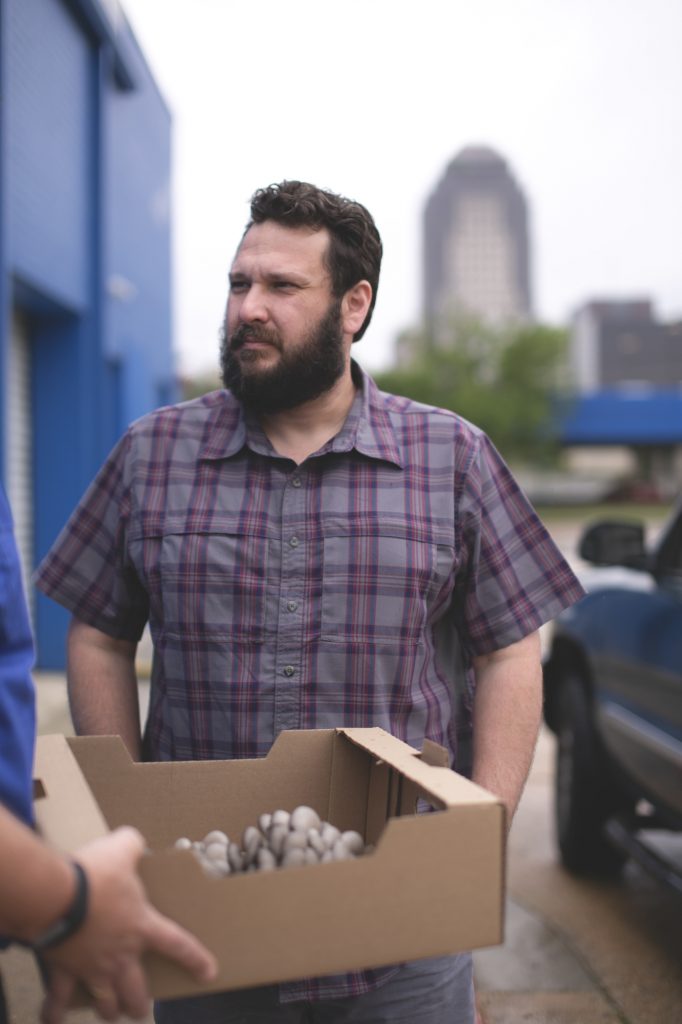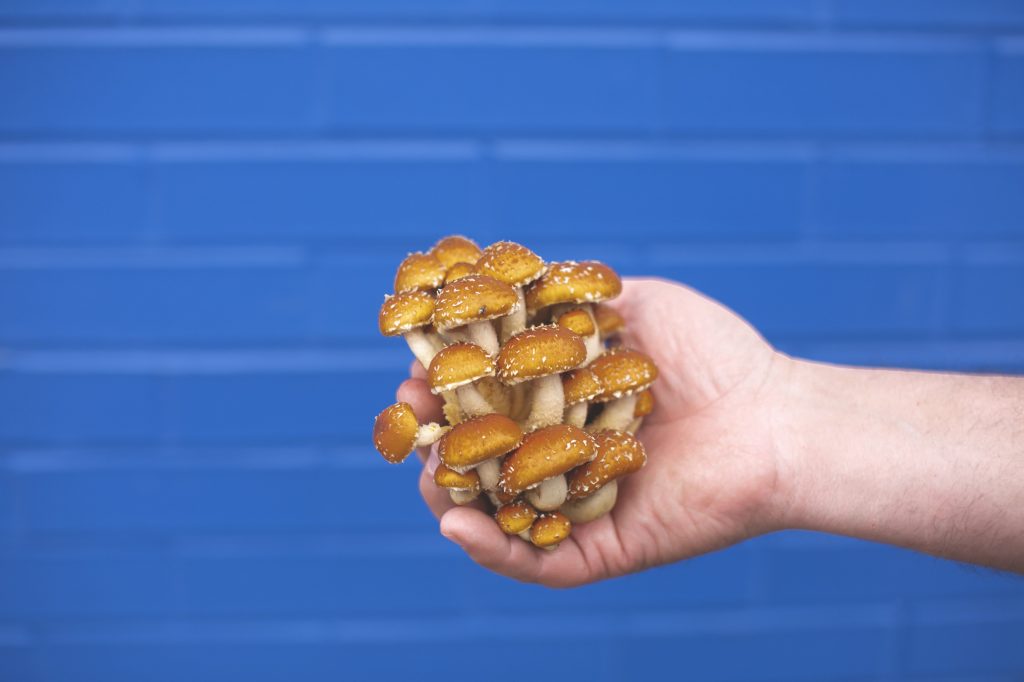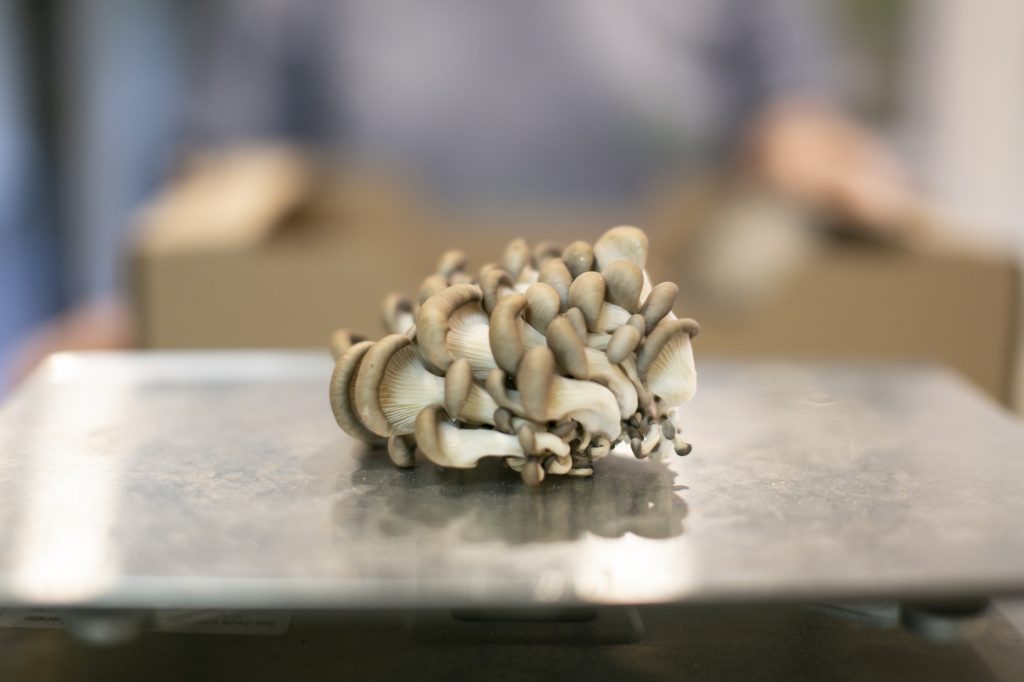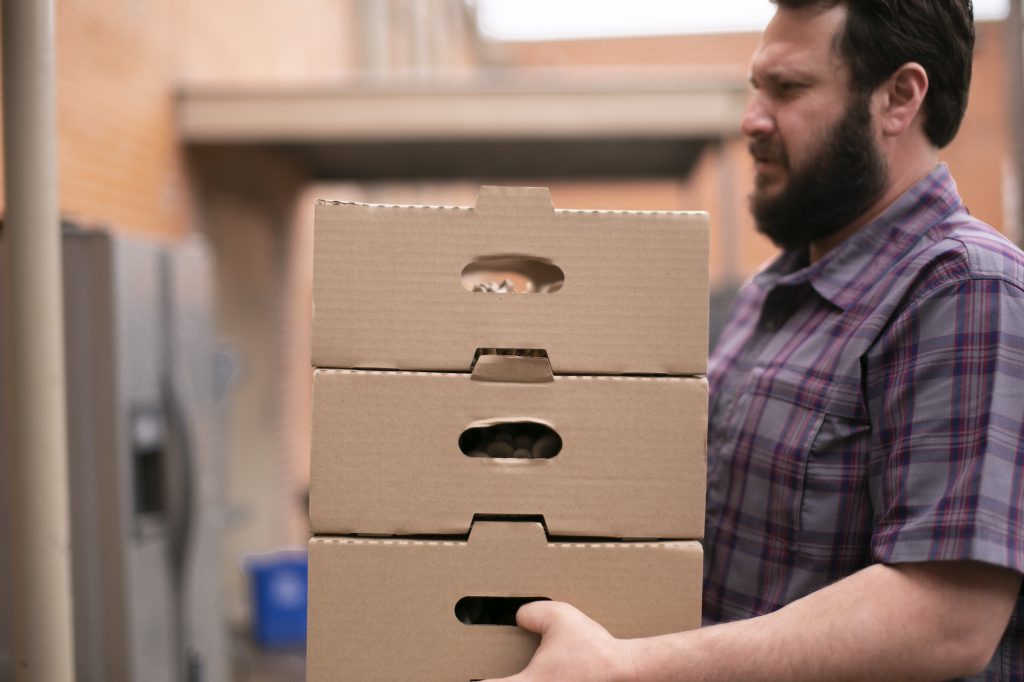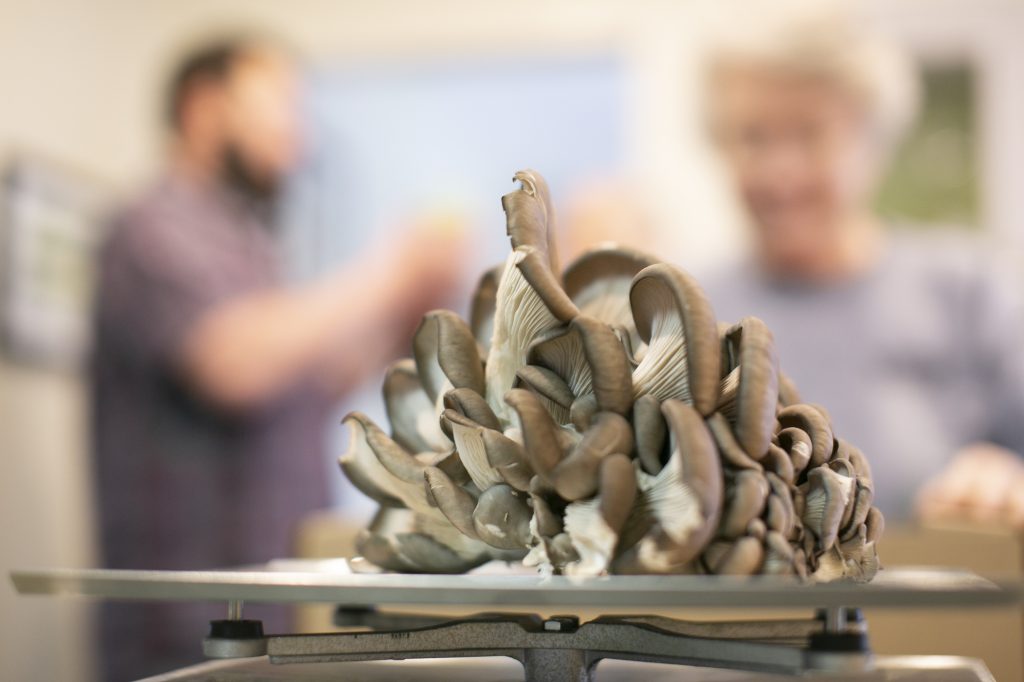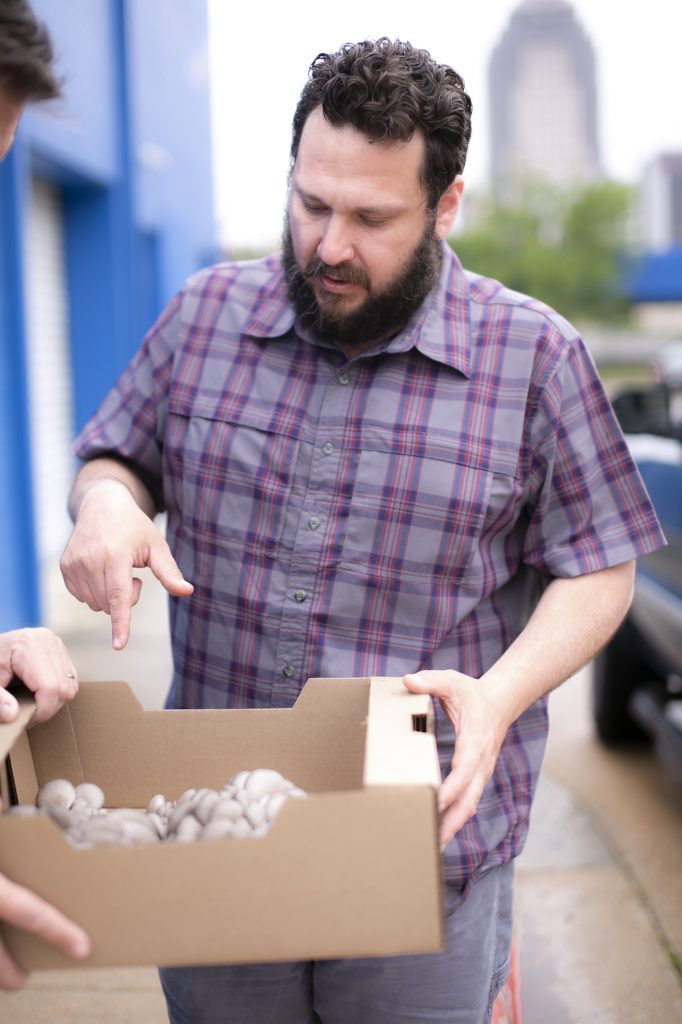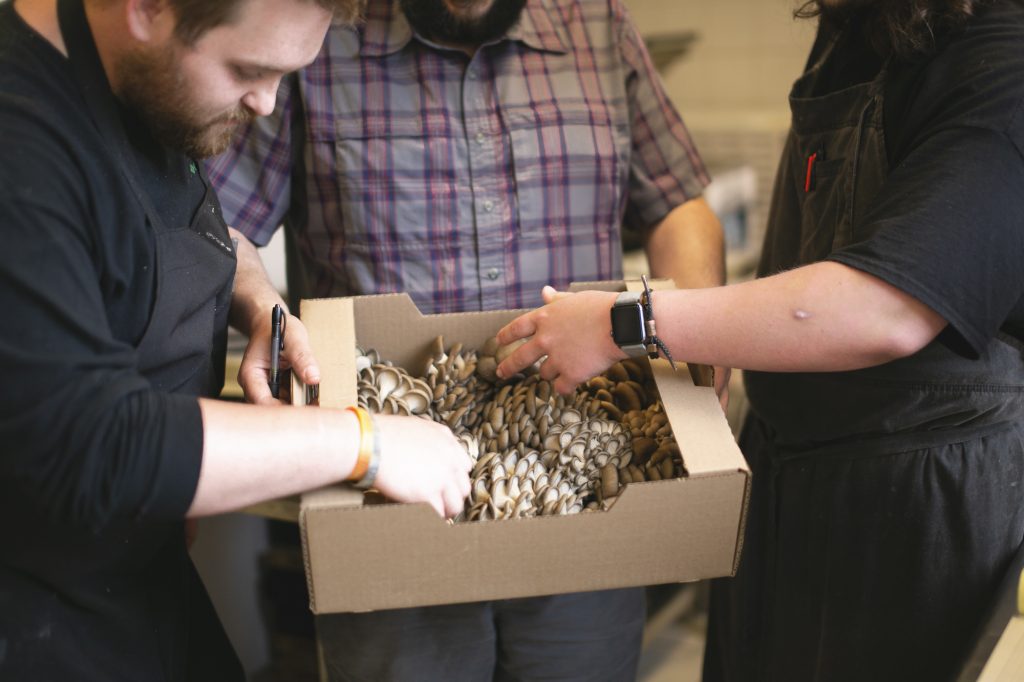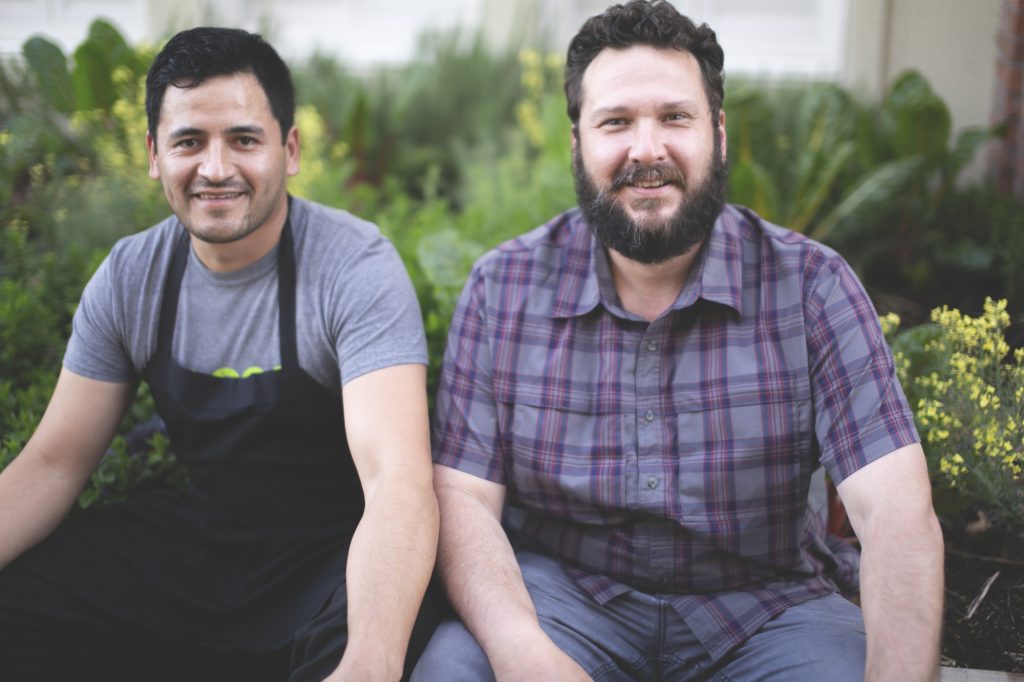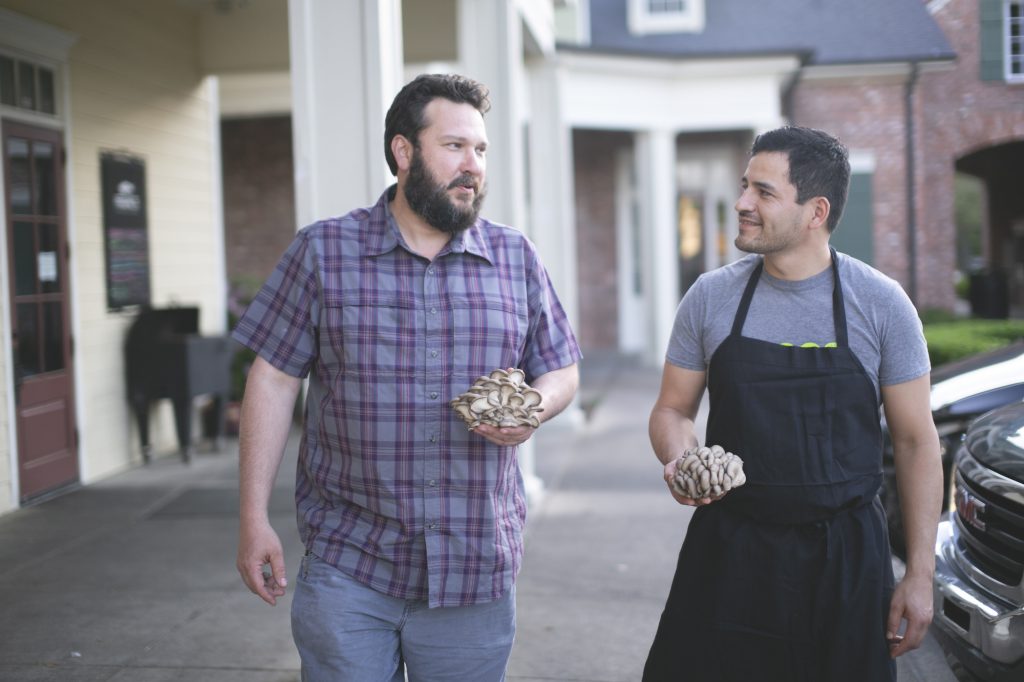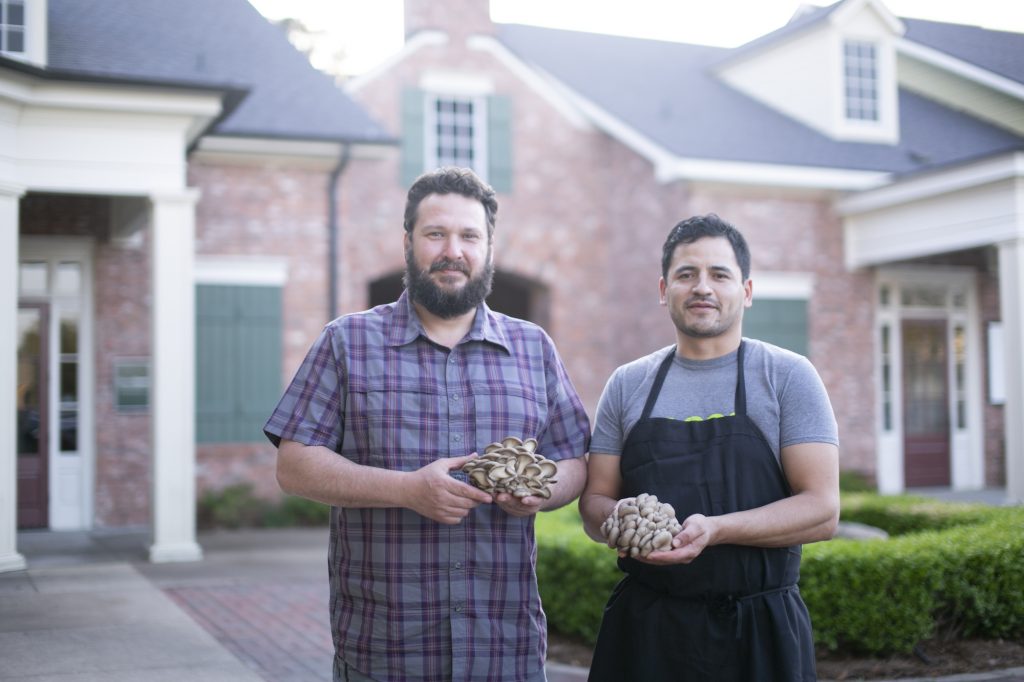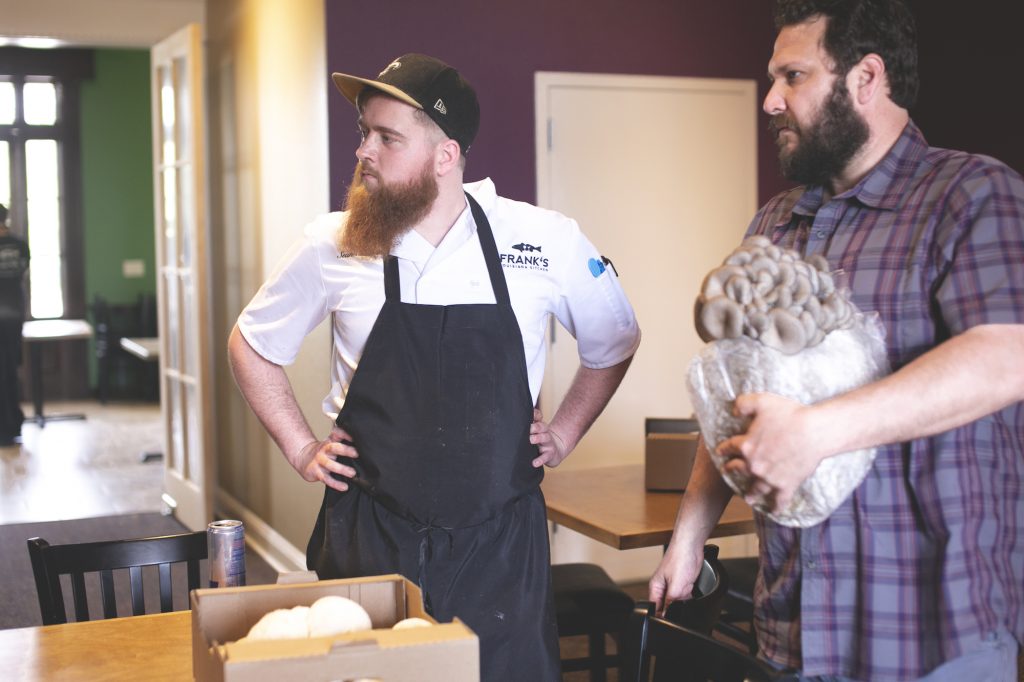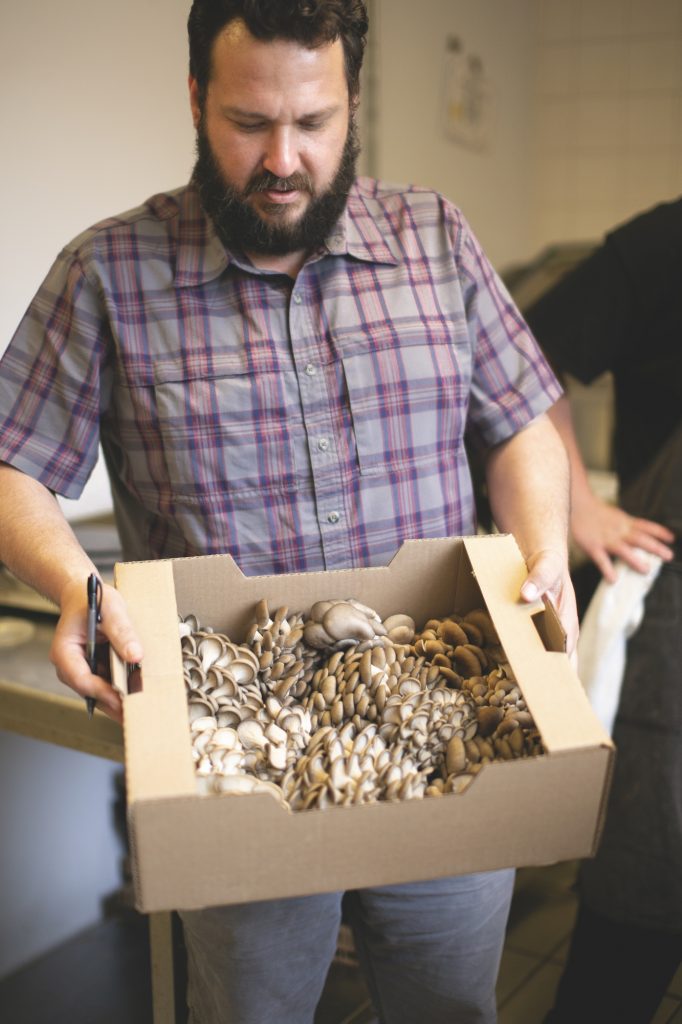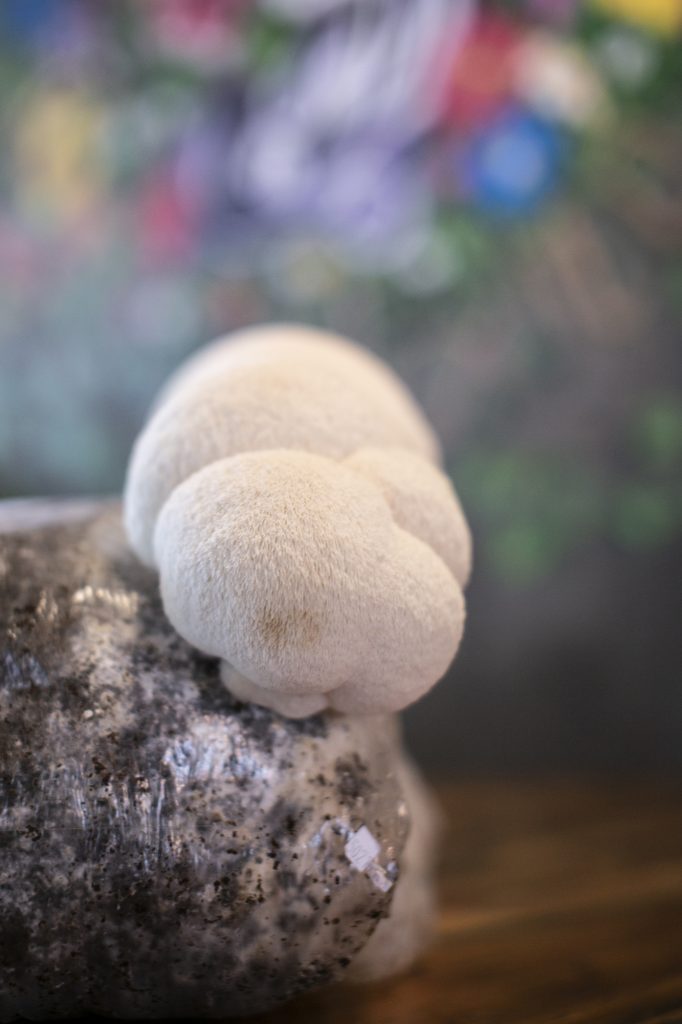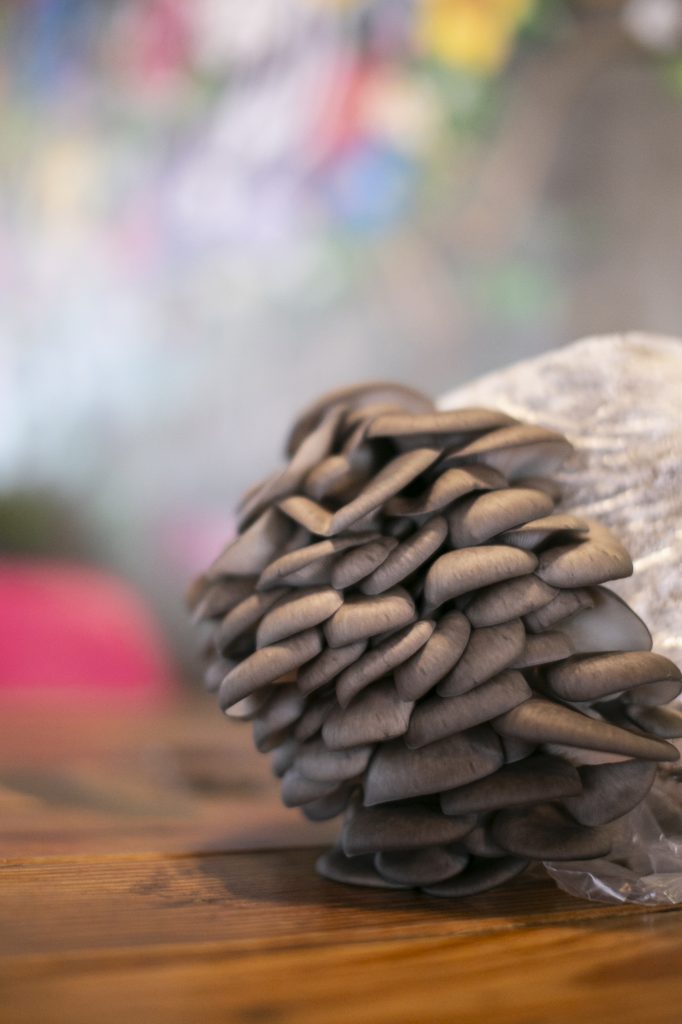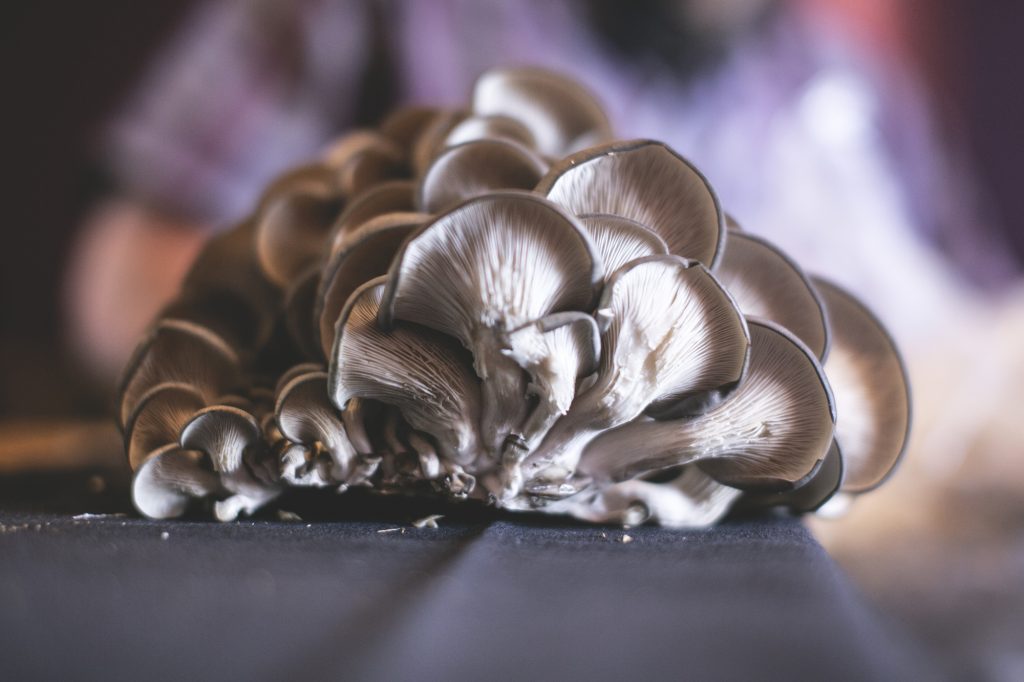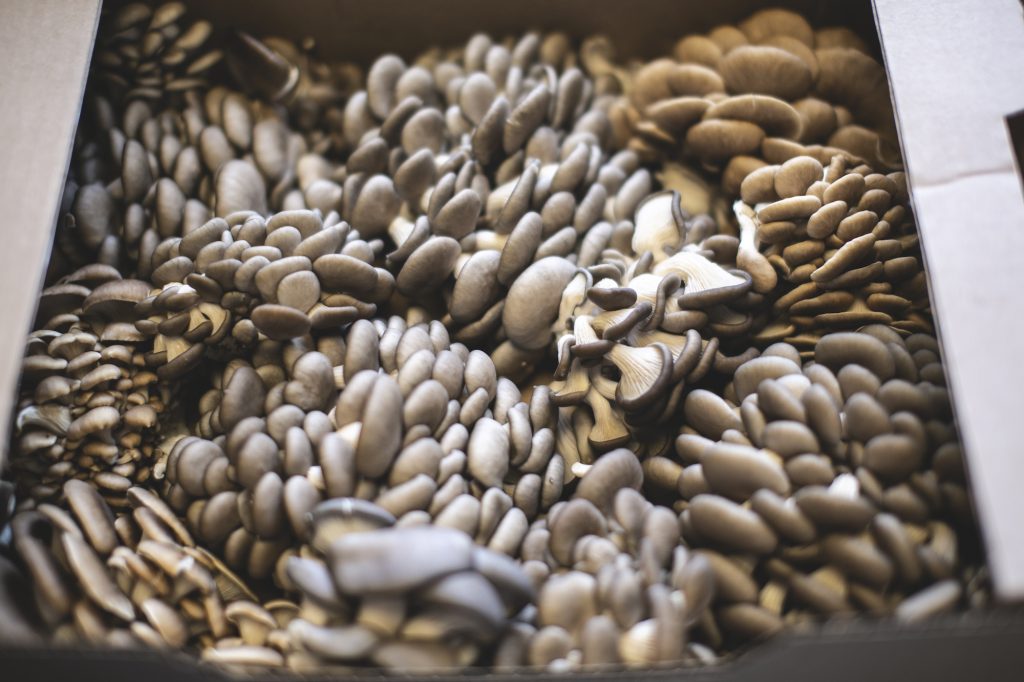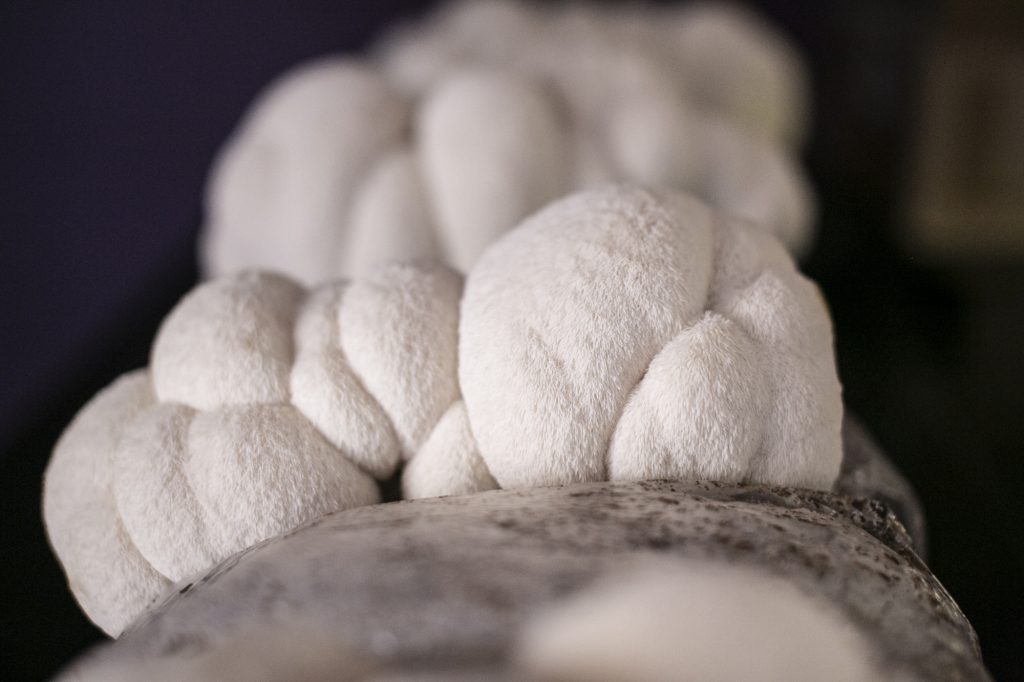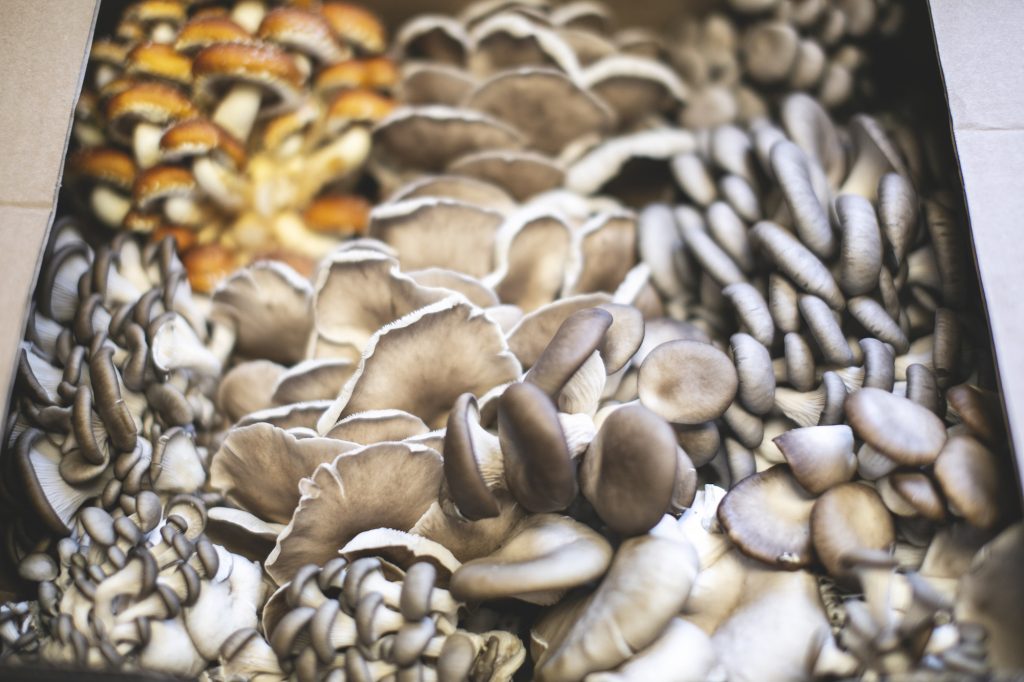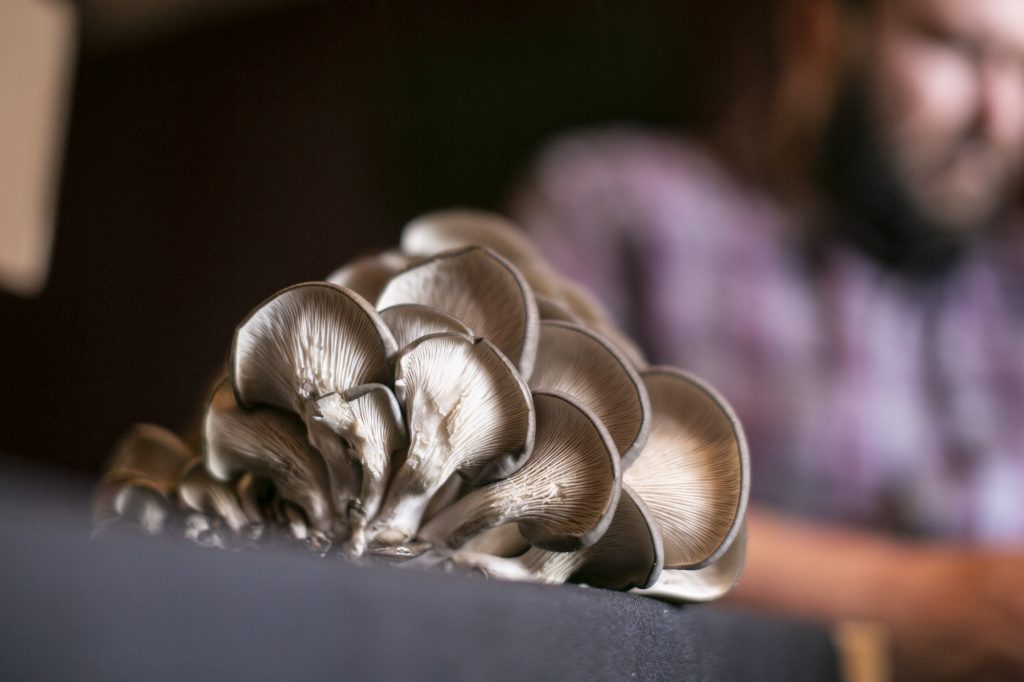Chris Richmond’s passion lies in the fruiting bodies of an intense network of fibers just beneath the forest floor. This fascinating connection of fibers, called mycelium, sends its energy up and out of the earth, in hopes of reproducing itself. The result is a mushroom, delicate and short-lived, yet potent with potential and mystery. The result is Richmond’s livelihood.
Richmond operates his company, Artemis Gourmet Mushrooms, from his Leesville backyard, nestled 120 miles south of Shreveport. Artemis is the only small-scale, exotic mushroom farm in North Louisiana. It’s a misty March morning as he spends hours harvesting the freshest farmed mushrooms in the area. Within two hours of harvest, the lion’s mane, oysters and chestnuts are in the hands of chefs, who then immediately begin prepping the evening’s mushroom dishes.
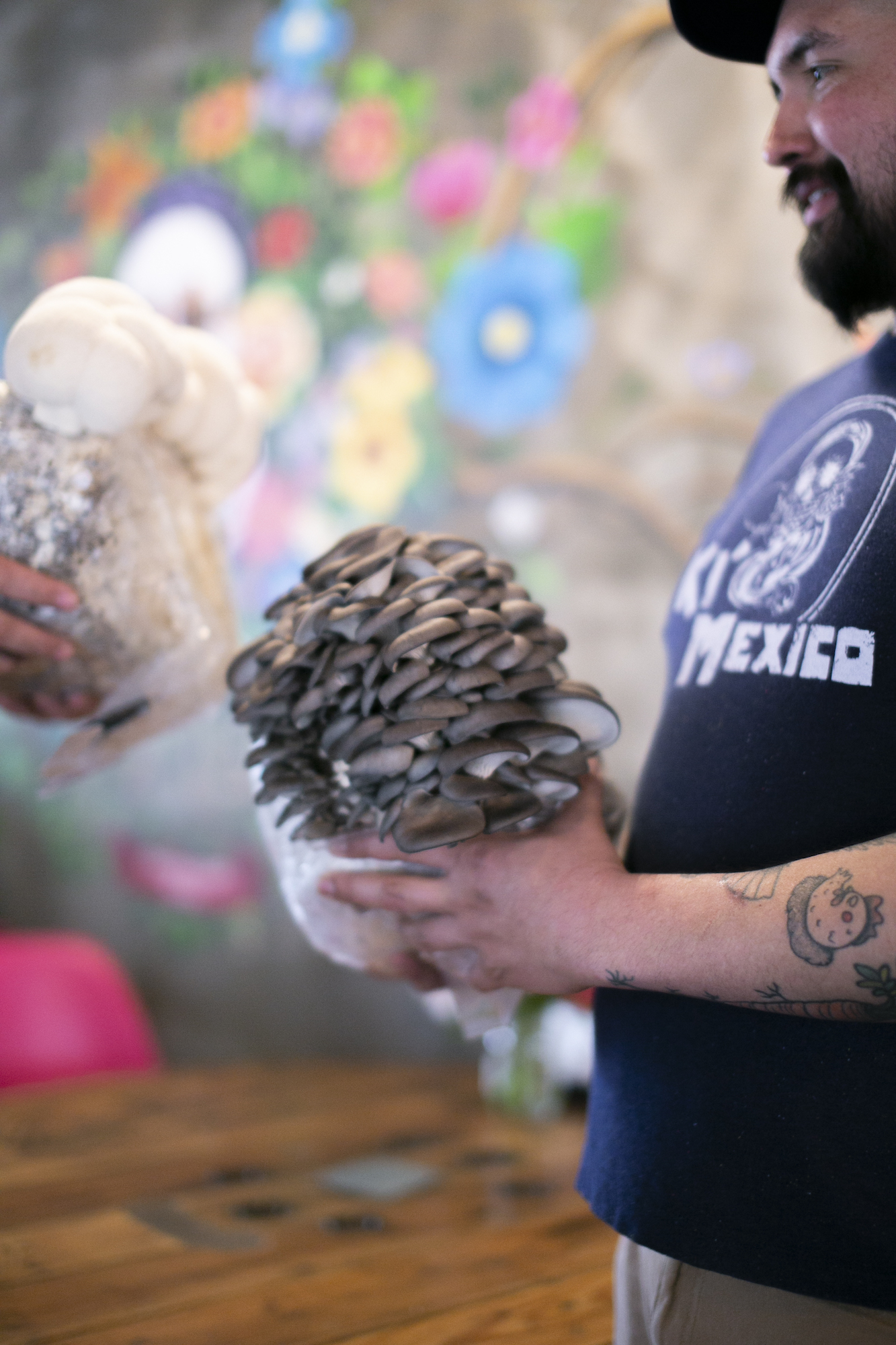
Richmond’s brand could be his face alone, padded with a dark beard and a kind, approachable smile. He’s a blend of total chill and ambition, soaked in sportsman’s paradise and cured with existential literature and self-actualization. He operates with a flexible professionalism. Richmond, alone, is reason enough to try his product. Slap this man’s face on a label already.
The products and delivery are consistent and reliable and demand is high. Shreveport is foaming at the mouth for exotic mushrooms. Though the product speaks for itself, the charm and magic of Artemis Gourmet Mushrooms is found in Richmond’s uncanny ability to bring life into every exchange. “I love what i do. I enjoy the whole thing,” says Richmond. I enjoy talking with the people I sell to. Most of the people I’ve met have become my friends. I feel like I’m part of the community and giving something. I’ve found my thing.”
Bill and Cheryl Hagar’s home in South Highlands is on Richmond’s delivery route. Instead of a front lawn, the Hagar’s grow food, flowers, and herbs.To know more about them you can check here. Legacy Landscape assistance and overlooking the garden consistently made Richmond and Bill enjoy each other’s company.You can also contact experts from pest control portland to control pests in your garden and to make it more impressive.“We aren’t just a customer to him,” says Cheryl. “We have a relationship with him. I love him. He’s wonderful.” Cheryl examines the day’s inventory with a wide-eyed curiosity. Her excitement is contagious. “These are so beautiful,” she says. “His mushrooms are so fresh and you can taste that.” Freshness is a major contributor to the Artemis craze. “Most people have never had mushrooms this fresh,” says Richmond. “Mine are sometimes harvested a couple of hours before dining. You can’t beat that freshness.”
Most mushrooms found in grocery stores are at least a few days old, if not more. Statistics show that anywhere from forty to sixty percent of U.S.-farmed, exotic mushrooms are harvested in one area of Pennsylvania. The journey from PA to grocery stores dramatically compromises the mushroom and its constituents. Recent controversy, as reported by Laura Phelps of the American Mushroom Institute, suggests that a large number of these PA mushrooms are inoculated (planted) with spawn (much like a seed) and shipped from China. By the time the substrate (growing material) reaches the U.S., the mushrooms are fruiting and thus harvested and then technically labeled as a U.S. product. There’s no regulation involved in this process and one PA mushroom company has acquired the lawyers help with filing a chapter 7 bankruptcy due to its inability to compete with the cheaper substrate. These unregulated substrates could also compromise the quality of store-bought mushrooms.
“Sterilization is necessary when you’re creating a perfect habitat,” explains Richmond. “On a commercial-scale you need all the help you can get to eliminate any competing organisms.” Chris is extremely careful with food safety (that he checks with the Food Rapid Test kits before selling it to the consumers) and proper growth. His lab is sterile with fresh, HEPA-purified air circulating throughout the climate-controlled grow house. He monitors CO2 levels, humidity, air-quality and lighting, making adjustments when necessary. The mushrooms are grown in sterile substrate, pasteurized sawdust wrapped tightly in plastic and neatly packed into cinder-block shapes. Once inoculated, it is in this substrate that the fungi begins its network of mycelium, producing a perfect fruit through a small opening in the plastic. When conditions are perfect, the outcome is predictable. “I want to get as close to the same outcome every time, that way I can repeat it.”
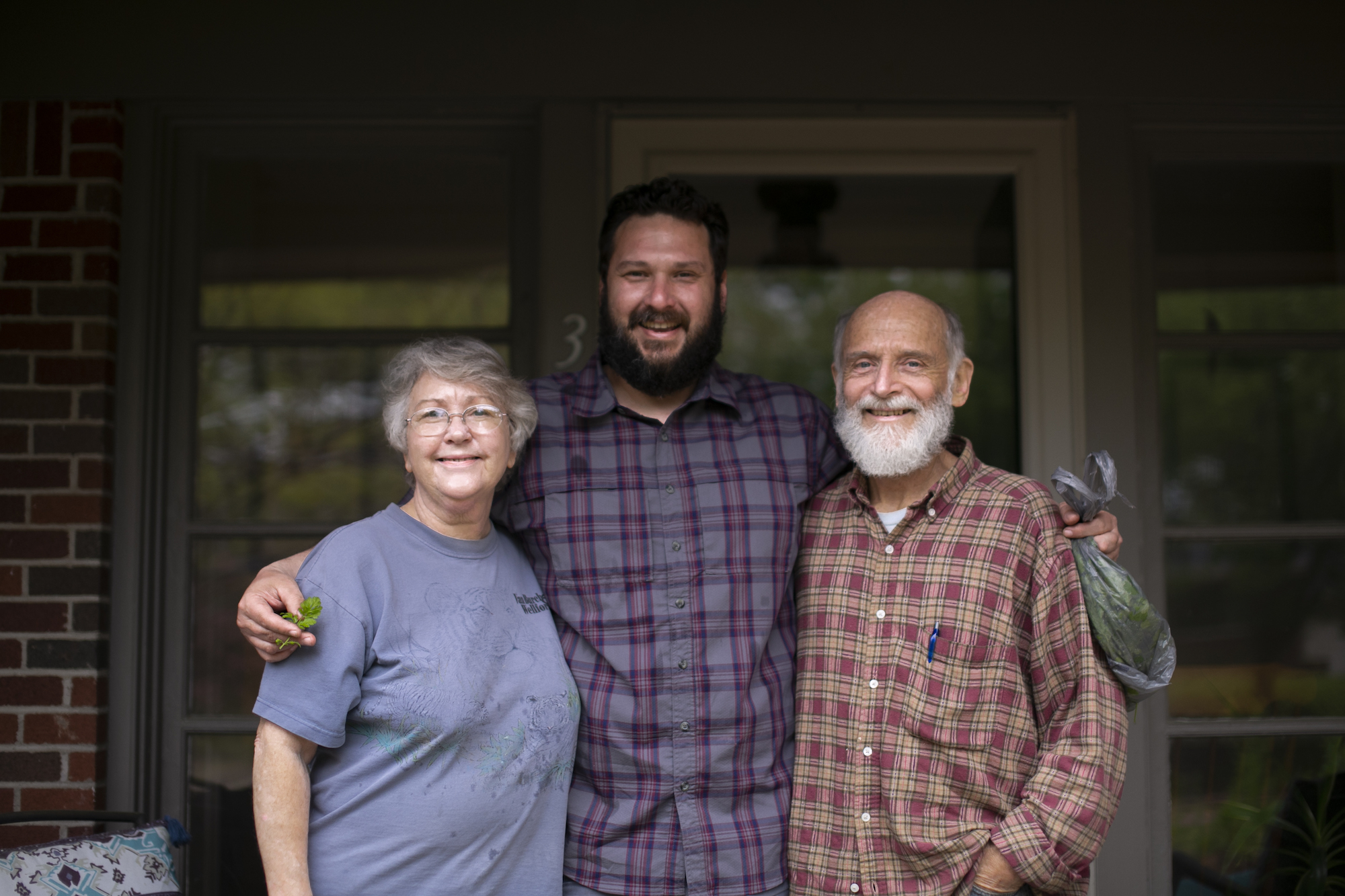
Grow houses are similar to green houses in that climate is controlled, but fungi is in a kingdom of its own for good reason. While plants gather their energy through photosynthesis, fungi gathers its fuel much like animals, through absorbing nutrients by digesting dead, and sometimes living, organic matter. And much like animals, fungi require oxygen and put out CO2. With a cooler temp, plenty of moisture and fresh, clean air, mushrooms almost suddenly appear in a fascinating turn of events involving hydraulics and inflation. The mushroom itself is the reproductive portion of fungi. The fascination with fungi can be explained by these things alone. Yet, the lives of mushrooms are even more complex and mysterious than previous thought.
“They are starting to link that trees talk to each other by using the mycelial highway to communicate,” Studies show that fungi and plants can beneficially engage in what is called a mycorrhizal relationship, where the building blocks of mycelium, called hyphae, wrap around the roots of plants and trees. It is here that the plant gives sugars to the fungi in exchange for nutrients. Fungi acts a parasite, keeping balance among the forest, while simultaneously giving life to other plants. It is thought that without fungi, the forest floor would pile on top of itself, unable to decompose thus stopping the cycle of forest ecology. Scientists are also using mycelium to eliminate toxins in the environment through a process called mycoremediation. In addition to these elaborate systems of give and take, the fruits of the fungi offer food to so many creatures.
“We used to think that mushrooms were all water and no nutrients when I grew up,” Cheryl Hagar recalls. But science now shows that some exotic varieties of mushrooms are full of nutrients, protein and vitamins while low in calories, fat, and carbohydrates. Not only do they provide important nutrients like potassium and riboflavin, they’re a source of fiber and have anti-inflammatory properties. Highly medicinal and used since ancient times, certain varieties of mushroom have healing impacts on the human body such as reishi, shiitake, lion’s mane, oysters, cordyceps, and many more.
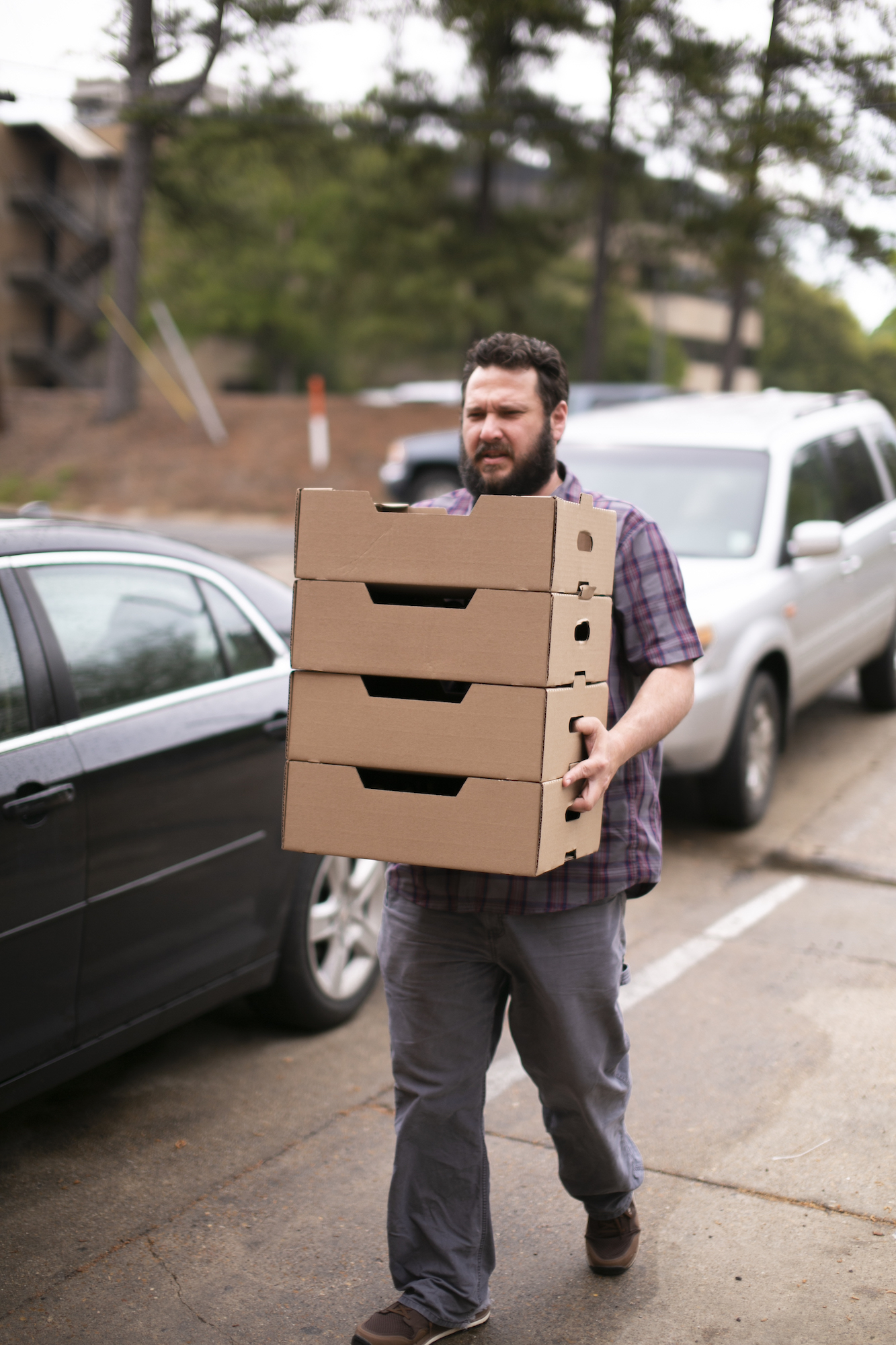
Though mycotoxins are a real thing and mycophobia has its place, illnesses induced by these toxins are mostly linked to inedible fungi found in homes through the air we breathe or from ingestion of misidentified mushrooms. The National Cancer Institute claims that “Medicinal mushrooms have been approved adjuncts to standard cancer treatments in Japan and China for more than 30 years and have an extensive clinical history of safe use as single agents or combined with radiation therapy or chemotherapy.” Knowing the source of a mushroom and sticking to the well-studied nutraceutical varieties is a safe bet. Artemis is home to beneficial and healing varieties such as lion’s mane, oyster mushrooms of all colors and flavors, king trumpet, chestnut mushrooms, shiitake, and sometimes hard-to-find varieties like black trumpet and golden chanterelles.
If the Romans believed that mushrooms were the “food of the gods,” then Artemis is a fitting name for an urban, mushroom farm. Artemis, the daughter of Zues and twin of Apollo, was the Goddess of the wilderness and the hunt and was a champion of the forest. Like Artemis, Richmond thrives in nature. His hunter-gatherer leanings guided him first to fishing, then hunting and finally to mycology, in the form of foraging. “Some of my best experiences and connections with mushrooms happen in the woods,” says Richmond. “I feel a connection with nature, specifically mushrooms. It runs deep. You can’t compete with mother nature. What she does is miracle after miracle.”
It is in mother nature that Chris began to take interest in mushrooms over a decade ago. “I started with morel mushrooms, foraging in the midwest on turkey hunts,” he says. He describes a bewildered version of himself that still exists, hints of mysticism under the layers of practicality. With the trend of foraging rising, Richmond sets a standard. “I never take more than what I need and I don’t take everything,” he says. “I also tread lightly in those spots. I have a respect for those areas and treat them tenderly.”
Apart from the many fascinating aspects of mushrooms, the driving force in Richmond’s life are his two children and the basic human need of food. He is an avid cook, showing his children that they are loved through preparing thoughtful meals. “Its all about the cooking. I have always been interested in feeding people and providing that experience,” he says. Cooking and farming go hand-in-hand.
Standing in the afternoon shade among the garden at El Cabo Verde, Chef and owner Gabriel Balderas converses with Richmond, discussing everything from compost sources and pollinators to varieties of mushrooms Richmond might grow in the coming weeks. The conversation is saturated with a sincere curiosity, both parties benefiting greatly from these moments together. “You cannot stop growing mushrooms,” says Balderas. This statement is common for Chris to hear from his patrons. His product is in high demand among creative, local restaurants.
At Frank’s Louisiana Kitchen, Chris delivers oyster mushrooms and the twenty-pounds of lion’s mane ordered for use in Chef Sean Sullivan’s Food Prize dish. Sullivan loves working with mushrooms and sees them as an entertaining challenge. “A lot of people will not eat mushrooms and can be super picky about them,” Sean says. “Mushrooms are a canvas to work on for me.” The staff at Frank’s uses one-hundred percent of the mushroom, not a single bit is wasted. From main courses to stocks, soups and the famous Artemis Salad at Frank’s, the versatility of the mushrooms is explored and honored.
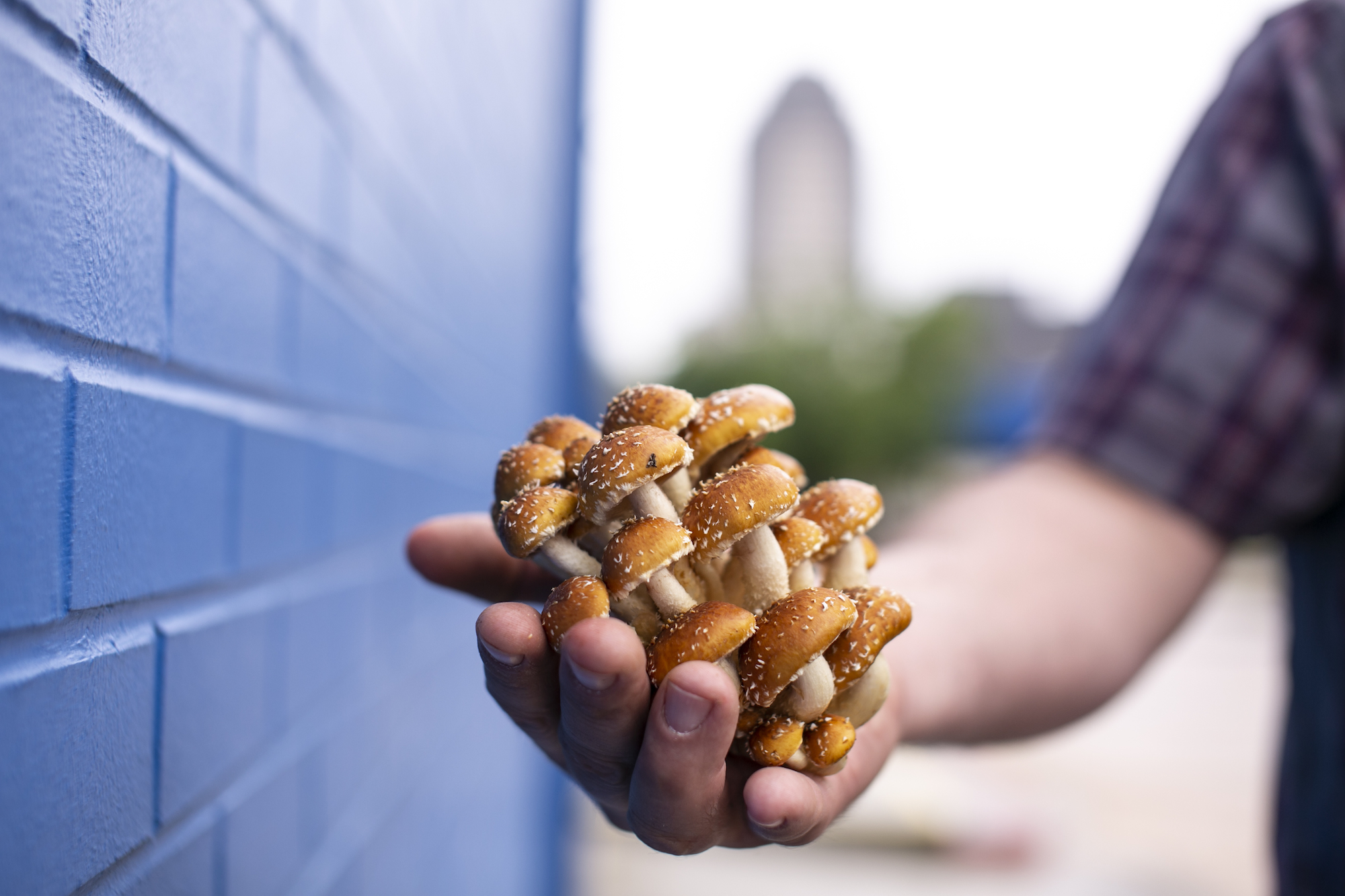
Chris arrives at Wine Country Bistro with Italian oyster mushrooms and smaller pieces of other varieties. The entire kitchen staff hovers over the boxes. Chef Blake Frederick pulls out a container of pickled chanterelles from a prior delivery and also walks Chris around the massive kitchen to where he is fermenting some Artemis lion’s mane. Once again, every bit of the mushrooms are used. While measuring out the order on a scale and conducting business, Richmond catches up with the kitchen staff, admiring new cooking knives and sampling the creative mushroom concoctions. “What I love about coming here is seeing all the different things that people create with these mushrooms,” he says. “You see all these folks learning to cook and they are really inspired in the ingredients and tools.”
Richmond spends on-average fifty-hours cultivating, harvesting, and delivering about 150 pounds of mushrooms weekly throughout the state. “Im a smaller company and do this all on my own,” says the full-time father of two. In addition to the fifty-plus hours of physical work, he devotes more hours and energy toward marketing and building relationships with his patrons.
As Artemis expands in building and structural features and increases supply, he has plans to further expand his services and products as well. In addition to providing private consultation for mushroom growing, he has plans for an educational video series with local filmmaker Chris Evans. Education is going to be a main focus as well as preparing and selling mushroom-growing kits. Additional products to look for also include mushroom jerky and soup mixes.
“I am offering food and I am offering for thought,” Richmond proclaims.
You can find Artemis Gourmet Mushrooms at the farmer’s markets in Leesville, Alexandria, and soon Shreveport. You can also enjoy prepared Artemis dishes at El Cabo Verde, Frank’s Louisiana Kitchen, Ki Mexico, and Wine Country Bistro. Richmond does not have a website but you can follow his news on the Artemis Gourmet Mushroom facebook page. To place orders (and become a good friend) you can call or text Chris at 504-616-9269.


